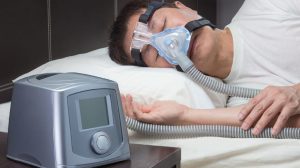Oxygen Concentrator With Medicare
If you are looking for information on how to buy a portable oxygen concentrator with Medicare, you may be looking for the same thing I was searching for. In fact, I was just about to purchase one myself, until I discovered a very valuable piece of information. It turns out that although many concentrators with Medicare are able to administer oxygen to individuals with certain health conditions, not all of them are approved for use with Medicare. One of the most important things to understand is that each individual’s condition and medical history are different. Some people with chronic disorders require high doses of oxygen therapy every day, while others require lower doses. As such, the type of oxygen concentrator that a patient requires is solely determined by the diagnosis and treatment of the individual.
Buy oxygen concentrator online
That said, I would like to go on to advise you that if you do have a medical condition that requires high doses of oxygen on a regular basis, I would highly recommend that you seek the advice of your physician before deciding on purchasing any concentrators with Medicare. One such condition is COPD (Chronic Obstructive Pulmonary Disease). Those with this condition typically require a portable oxygen concentrator with a very high concentration of oxygen. Since the lungs of those with COPD cannot heal properly, any increase in oxygen levels can cause serious damage to the airways. If you do require one of these devices for your treatment, I would advise you to get the highest dosage recommended by your doctor, at least five times daily, in addition to using an oxygen tank.

Another medical condition that requires a concentrator with Medicare is respiratory distress. Respiratory distress is often accompanied by other symptoms such as shortness of breath, coughing, fatigue, and more. Again, it is important to ensure that you receive the highest dose of oxygen, in order to alleviate the discomfort that is caused by other symptoms. In this case, it is recommended that you get a portable oxygen concentrator with Medicare. The same instructions apply to those who suffer from pneumonia or chronic bronchitis.
Can I Buy A Portable Oxygen Concentrator With Medicare?
As previously mentioned, the most common condition requiring a concentrator with Medicare is COPD. Those with this condition often have exhausted all of their oxygen supply due to either breathing in exhaust fumes or exhaling carbon dioxide while exercising. Because of this, it is necessary to hold a constant oxygen concentration level in order to prevent life-threatening complications from occurring. Although you may be advised by your doctor to obtain a more expensive concentrator, you will still be able to purchase a quality portable oxygen concentrator for use with Medicare. You can purchase a unit that holds between five and twenty pounds of compressed oxygen.
You may also want to consider buying a portable oxygen concentrator with Medicare if you are suffering from a more serious condition. Some of these conditions include chronic obstructive pulmonary disease (COPD), emphysema, or advanced sleep apnea. These conditions often require a very high concentration of oxygen in order to function properly, and having a portable concentrator on hand can provide a lifesaver for these individuals. Since most of these devices are handheld, you may even be able to take them with you anywhere.
Another option that you can consider when searching for a portable oxygen concentrator with Medicare is the freestanding unit. Many of these units provide an accurate reading of the oxygen level in a person’s blood. However, it is not recommended that you use one of these concentrators if you have respiratory issues as it can actually increase your risk of having an asthma attack. This is because a lot of the oxygen in these concentrations is contaminated with germs and bacteria that can make your symptoms worse. If you plan to use a freestanding concentrator, you should consult your doctor and ask him or her which brands and models would be best for you.